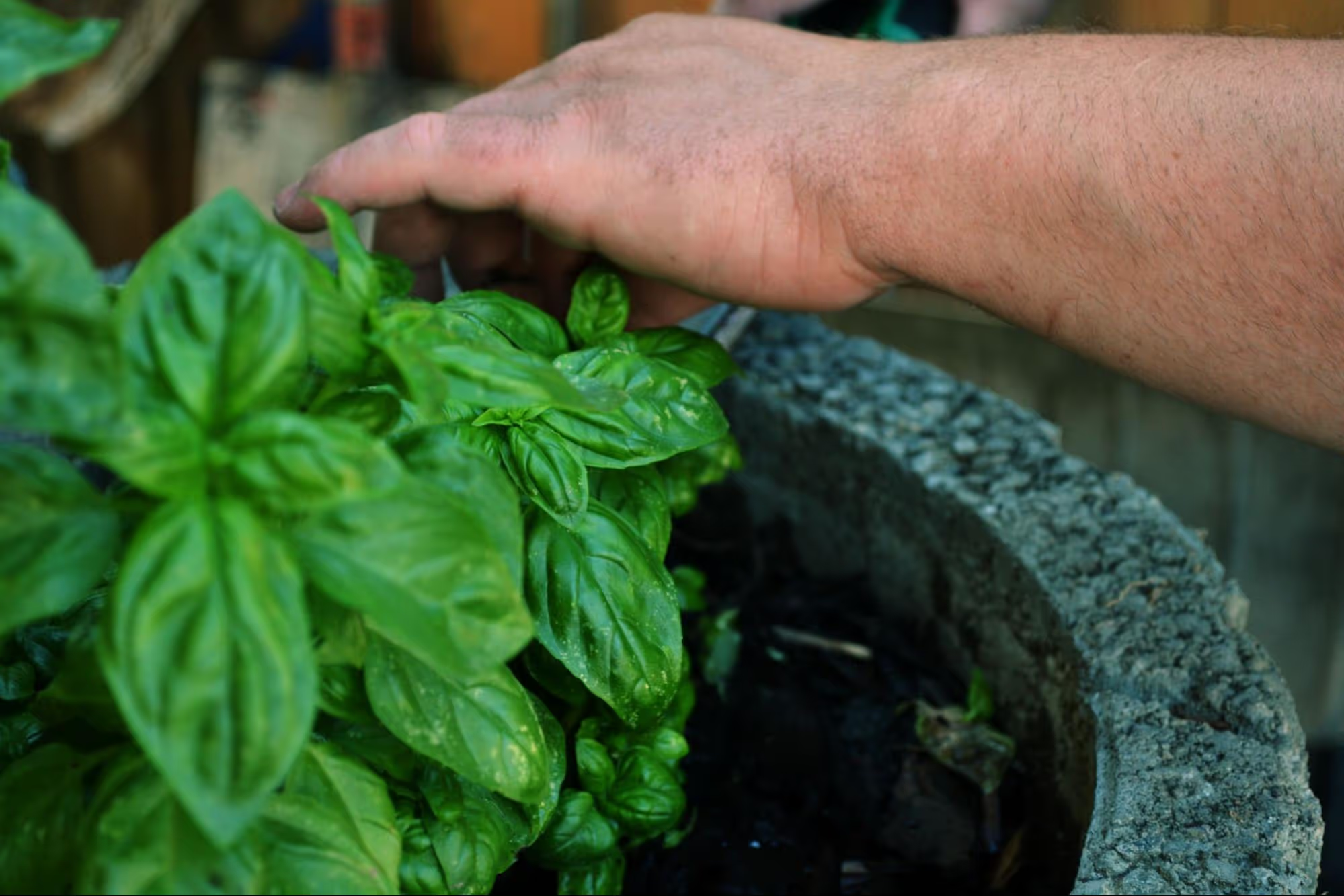Basil is a plant recognized for its intense flavor and fragrance, making it a staple in both culinary and traditional medicine. Its leaves are rich in essential oils that not only enhance the aroma of dishes but also provide numerous health benefits. To achieve healthy and vigorous basil growth, it is essential to pay attention to its proper nutrition. The right fertilization plays a crucial role in its development, directly influencing leaf quality, fragrance strength, flavor intensity, and overall plant health.
Why Fertilization is Important?
Basil is a fast-growing plant that requires a lot of nutrients, especially nitrogen, phosphorus, and potassium. Proper fertilization allows the plant to develop healthy leaves rich in essential oils, which are responsible for its distinctive scent and flavor. Additionally, good nutrition improves the plant's resistance to diseases and pests, making it stronger and more productive.
Types of Fertilizers for Basil
- Organic Fertilizers
Organic fertilizers are an excellent choice for basil because they not only improve soil quality but also provide a long-lasting source of nutrients. Some of the most popular organic fertilizers for basil include:
- Compost: Compost is a rich source of nutrients that slowly release elements into the soil. In addition, it improves soil structure, increases its water retention capacity, and stimulates healthy microbial activity.
- Manure: Manure is rich in nitrogen, phosphorus, and potassium, and it nourishes the plant while also improving soil quality. It is important to use well-aged manure, as fresh manure can "burn" the roots.
- Liquid Compost or Compost Tea: This liquid source of nutrients is quickly absorbed and can be used for regular watering of plants, allowing them to grow faster and have a richer flavor.
- Natural Mineral Fertilizers
Mineral fertilizers, which contain higher concentrations of specific nutrients, can be used for quicker effects. The most important minerals for basil include:
- Nitrogen (N): Essential for the plant's growth, especially for developing green parts. A nitrogen deficiency can slow down basil growth and cause pale leaves.
- Phosphorus (P): Helps develop a healthy root system and stimulates flowering, which is crucial for plants grown for seed production.
- Potassium (K): Improves the plant's resistance to stress conditions (such as drought or diseases) and supports healthy roots and leaves.
Recommended mineral preparations include balanced fertilizers like 10-10-10 (which contains equal amounts of nitrogen, phosphorus, and potassium), but also more specific fertilizers rich in one of these elements, depending on the growth stage of the plant.
- Natural Liquid Growth Stimulators
To speed up basil's growth or improve leaf quality, natural growth stimulants can be used. Products like humic acids, algae (e.g., seaweed extracts), or compost-based fertilizers help plants absorb nutrients better and stimulate healthy growth. Algae, rich in microelements, are applied in small amounts but can significantly contribute to the plant's health and enhance its flavor. Fish-based liquid mixtures can also be used. These fish-based fertilizers are rich in nitrogen and phosphorus, which are beneficial during the early growth stages of the plant. These mixtures also increase the production of essential oils in basil, improving its fragrance and flavor. By combining these natural growth stimulants with fish-based liquid products, basil will receive optimal nutrition, strengthening its root system and enhancing the overall production of essential oils. - Garlic and Onion in Compost
Garlic and onions can be extremely beneficial as organic additives for improving basil growth. Composting garlic and onion roots enriches the soil, providing essential minerals for faster growth and a richer flavor.
When and How to Recognize Fertilization Needs
Basil tends to use a lot of nutrients during its faster growth phases, which typically occur in spring and summer. To timely recognize the plant's need for fertilization, it is important to identify signs of nutrient deficiencies:
- Yellow Leaves: This symptom indicates a nitrogen deficiency, which is essential for the health of the plant's green parts.
- Weak Growth and Small Leaves: These signs may indicate a need for phosphorus and potassium, which support root growth and the plant's resistance.
- Fragrant and Juicy, but Small or Rough Leaves: This issue could be a sign of a deficiency in calcium and magnesium, both important for proper leaf formation and cell structure.
Fertilization should be carried out during the growing season when the plant is in its active growth phase. During the winter period, basil is usually moved indoors and does not require excessive nutrients.
How to Properly Fertilize Basil
Fertilization Frequency:
Basil is a fast-growing plant and should be fertilized regularly but moderately. It is recommended to fertilize every 3-4 weeks during the active growing season. Over-fertilizing can lead to excessive growth, which may reduce the concentration of essential oils and negatively impact the flavor.
Application Methods:
- Watering: Liquid fertilizers, such as liquid compost, should be applied directly through watering. This method allows plants to absorb nutrients quickly.
- Adding to Soil: Dry fertilizers or compost can be mixed with soil or placed on the soil surface. This type of fertilization provides a slower, long-lasting effect.
When and How to Stop Fertilizing
To ensure the best flavor and leaf quality, it is essential to stop fertilizing basil a few weeks before harvesting. This allows the plant to direct its energy into producing essential oils, resulting in a richer fragrance and flavor.
Optimal Fertilization for Healthy Growth and Full Flavor
Proper fertilization is crucial for basil’s healthy growth and rich flavor. Using high-quality organic and mineral fertilizers in the right intervals and amounts can significantly enhance the production of succulent, fragrant leaves that will elevate any dish. Thoughtfully chosen nutrition helps the plant reach its full potential, making it healthier, more resilient, and more productive. With proper care and fertilization, basil will grow strong, offering a wealth of essential oils, and its taste and aroma will be unmatched.
